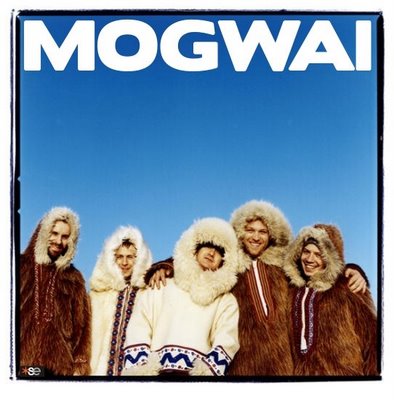
At the start of their first full-length, Mogwai provides a fan testimonial and turns it into a mission statement: “If the stars had a sound, it would sound like this.” Though Young Team was released in 1997, the post-rock quintet has yet to further explain their music. They issue frequent denials to fans and reporters that song titles like “I’m Jim Morrison, I’m Dead” and “I Love You, I’m Going to Blow Up Your School” add a layer of depth to their electrifying crescendos, or have any intrinsic meaning at all. “Our music is not stories, just notes,” a founding member once explained.
The same can be said for Special Moves and Burning, Mogwai’s first-ever live releases. These audio and visual recordings, respectively, come from a three-day, sold-out residency at Brooklyn’s Music Hall of Williamsburg. They span seven LPs of material—13 years of toying with volume, vocals, pacing and structure; 13 years of fending off pedal-heavy, metal-saturated stagnation.
Yet with Special Moves, it’s hard to tell. In its rendition of breakout hit “Mogwai Fear Satan,” the band removes much of the studio version’s underlying shuffle and brings itself to a near standstill before improvised electric guitar lands like an uppercut following a left hook. Loud moments are louder than ever—but Mogwai’s trademark sonic stream-of-consciousness is more truncated than before. Songs that initially relied on shock value benefit from this no-holds-barred methodology, such as “Like a Herod” and grand finale “Glasgow Megasnake.” But tracks like “Mogwai Fear Satan,”—the gracefully subtle ones—suffer slightly.
As with Special Moves, Vincent Moon and Nathanaël Le Scouarnec paint the band with a swath of grainy, high-contrast black and white. Yet the Burning DVD offers so much more—hovering like a housefly in slo-mo, La Blogotheque’s filmmakers obsess over the hands behind the music, rather than dwell on the faces. Just three songs in, Burning scans through a crowd overlooking an empty stage; the next moment, it leaps into “Like a Herod”‘s initial, out-of-left-field explosion. Like most of Mogwai’s music—free of the standard verse-chorus-verse song structure—Burning is devoid of a sense of time. And with its unique focus, the film invites us to bask in the bands music from a ground-level, audience POV.
This collection of live ruminations is less a reward for old-guard fans, and more a primer for unfamiliar ears. They highlight Mogwai’s biggest stylistic trademarks, and little else—the ambient drone and the electric guitar crashes that break its spell, and the waves of sound that evolve from carefully crafted crescendos. So while the final cuts are cohesive, they’re also tight-lipped—safe.
